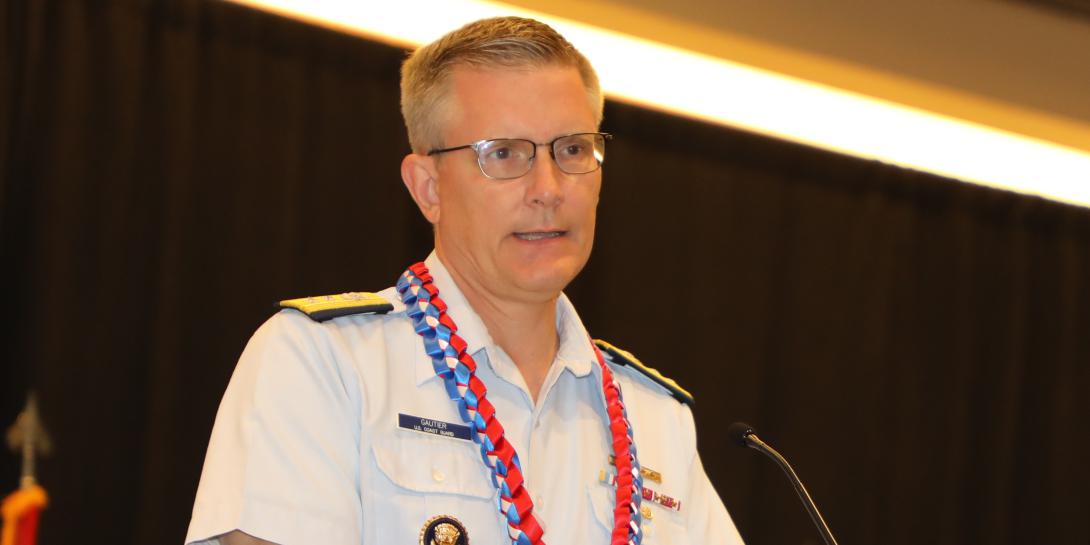The Coast Guard Dives Into Cyberspace
The U.S. Coast Guard is taking its place alongside the other national security services in cyberspace as it deals with a new mission menu. Its traditional taskings for search and rescue have expanded in scope and complexity, and it also is assuming new operations in an increasingly challenging maritime environment.
The changes affecting the Coast Guard apply to its Pacific Area, and its deputy commander, Rear Adm. Peter W. Gautier, USCG, described those to the audience on the second day of TechNet Indo-Pacific, being held in Honolulu April 11-13. Adm. Gautier explained how the Coast Guard is part of the conference theme of “From Data to Dominance.”
“We have to guard our own networks, just as defense agencies do,” he related. He noted that the Coast Guard is also the sector risk agency for the maritime transportation system, and securing it requires both cyber and physical security.
Our adversaries also work in the high latitudes in the Arctic and Antarctica.— Rear Adm. Peter W. Gautier, USCG, deputy commander, Pacific Area, U.S. Coast Guard @USCGPACAREA #AFCEATechNet
— Bob Ackerman (@rkackerman) April 12, 2022
Because the Coast Guard “hangs onto its assets for a very, very, long time,” it must make do with older systems until modernization can take root—and the Guard is modernizing its information systems. “We need to continue to improve with better systems targeted to the things we need to do to be better,” the admiral said.
“Data provides a competitive edge,” he continued. Modern computing will be supported by a big data platform, and the Coast Guard is developing its new data rules right now.
As part of its efforts to enhance cyberspace capabilities, the Guard is creating a new rating for cyber enlisted personnel. It also is hiring 52 civilian cyber experts who will be dispersed throughout the Coast Guard. And, it has created the first of what will be many cyber protection teams.
Data provides a competitive edge.—Rear Adm. Peter W. Gautier, USCG, deputy commander, Pacific Area, U.S. Coast Guard @USCGPACAREA #AFCEATechNet
— Bob Ackerman (@rkackerman) April 12, 2022
The Coast Guard performs many operations with other nations, in some cases serving as a main patrol force to interdict illicit fishing in smaller countries’ waters. This requires information exchange, in some cases with nations that are not a part of U.S. alliances and thus cannot receive classified information. Adm. Gautier allowed that the Coast Guard has become creative in crafting information in a way that can be shared at an unclassified environment.
It used to conduct joint operations with China, mostly to combat illicit fishing. However, those have stopped because of increased tensions with China. Instead, the Coast Guard has begun a new relationship with Taiwan. This largely consists of law enforcement and search and rescue with the Taiwan Coast Guard in a nonconfrontational approach, the admiral says.
“We model good behaviors—adherence to the rules-based national order,” he declared.




Comments